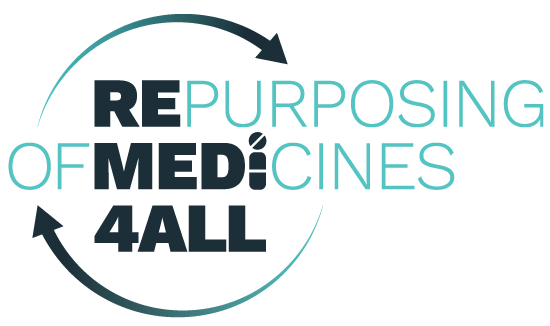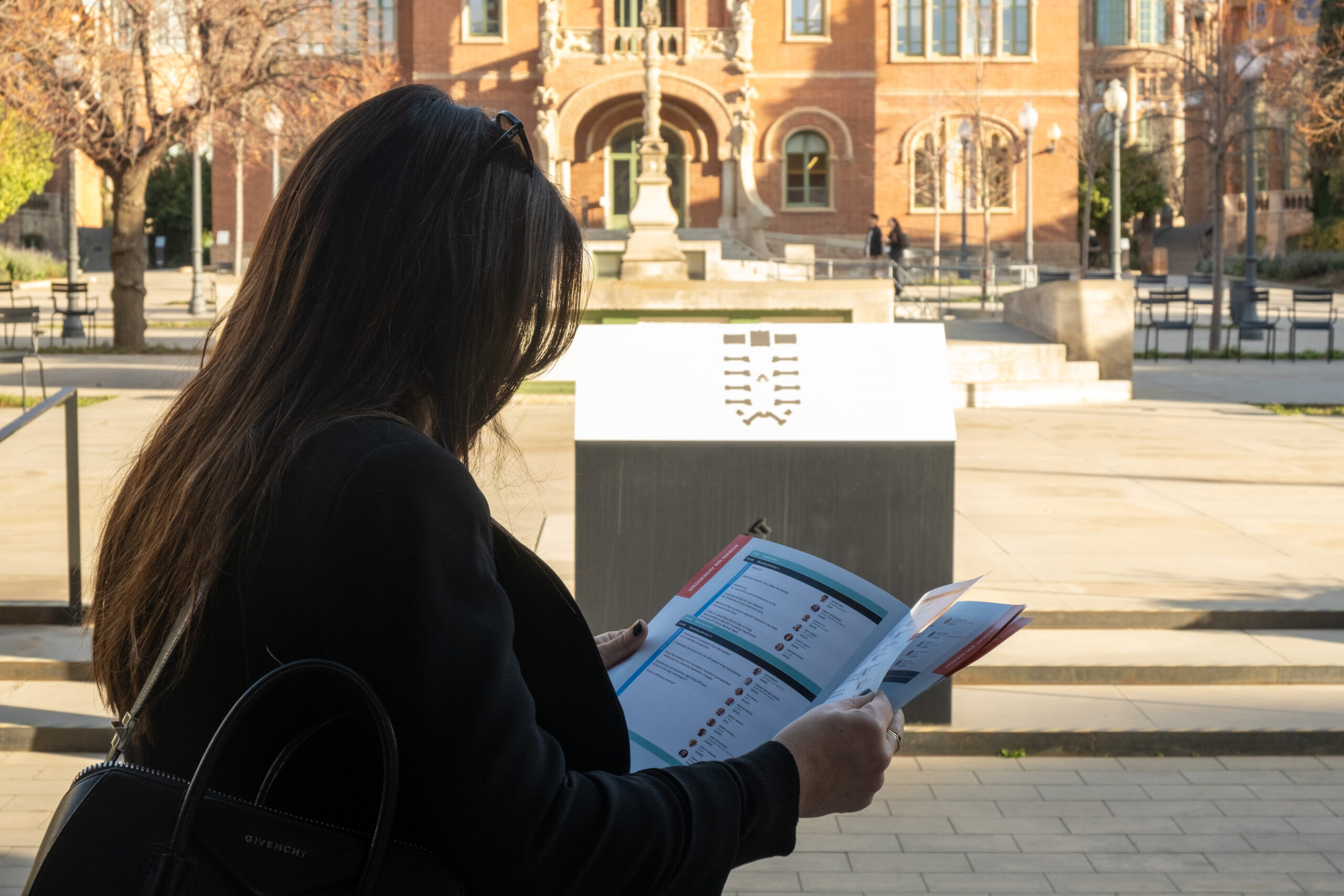Over 250 experts from around the globe gathered in Barcelona for the inaugural International Drug Repurposing Conference (#iDR24) last month. Among them were prominent voices from the research and patient communities, regulatory and HTAs bodies, health authorities, and pharmaceutical and generics industries. Together, the attendees explored innovative approaches, discussed the many challenges of drug repurposing, busted myths, shared best practices, and further worked towards a healthier future for patients and society.
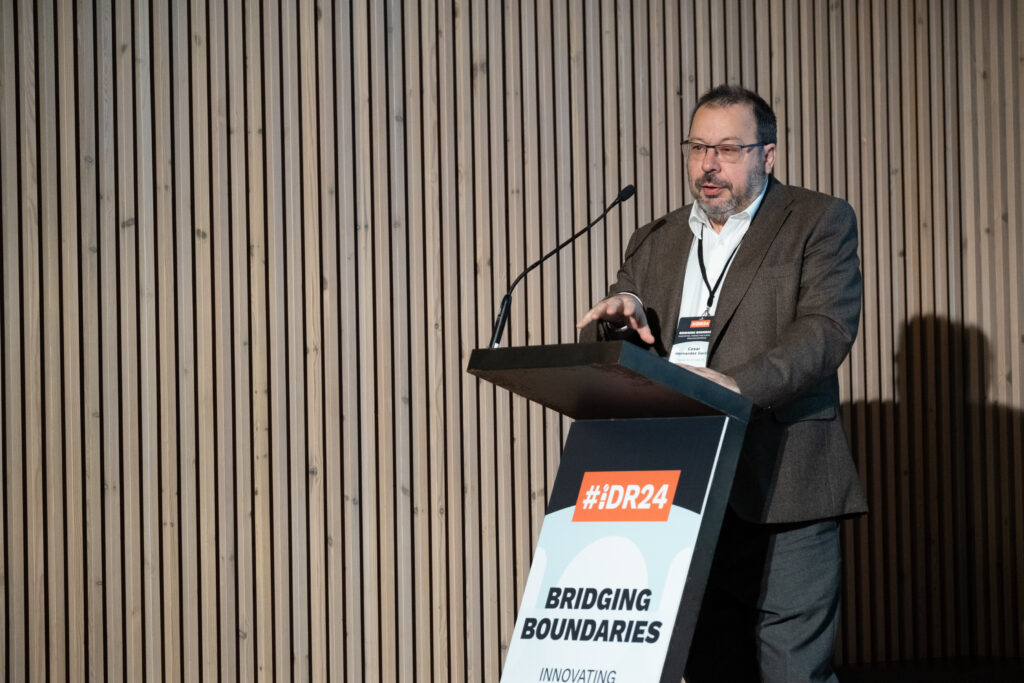
“The complete pathway a repurposed drug needs to travel to reach patients is not well understood by all those who intervene in every stage of the process. Bringing the community together at #iDR24 is a great step in making the drug repurposing process more efficient and truly collaborative,” said Anton Ussi (CEO at EATRIS and REMEDi4ALL Principal Investigator) during his opening speech.
César Hernández, Director General of Common Portfolio of the NHS and Pharmacy at the Spanish Ministry of Health, welcomed participants on behalf of the Spanish government and referred to the upcoming EU pharmaceutical legislation: “Drug repurposing is one of the things we can do to rebalance the pharmaceutical system. This is why this approach is being considered in future legislation”. Hernández advocated for a more pragmatic approach that helps overcome current hurdles in the regulatory, pricing and reimbursement processes for the sake of patients.
Understanding how to make better use of the drugs we already have
“Finding new medicines for each disease where there is no existing treatment may take centuries. We can help fill this gap faster, cheaper and more safely by repurposing approved drugs and repositioning investigational drugs,” stated Donald Lo, Director for Medicines Development at EATRIS and Scientific Lead of REMEDi4ALL.
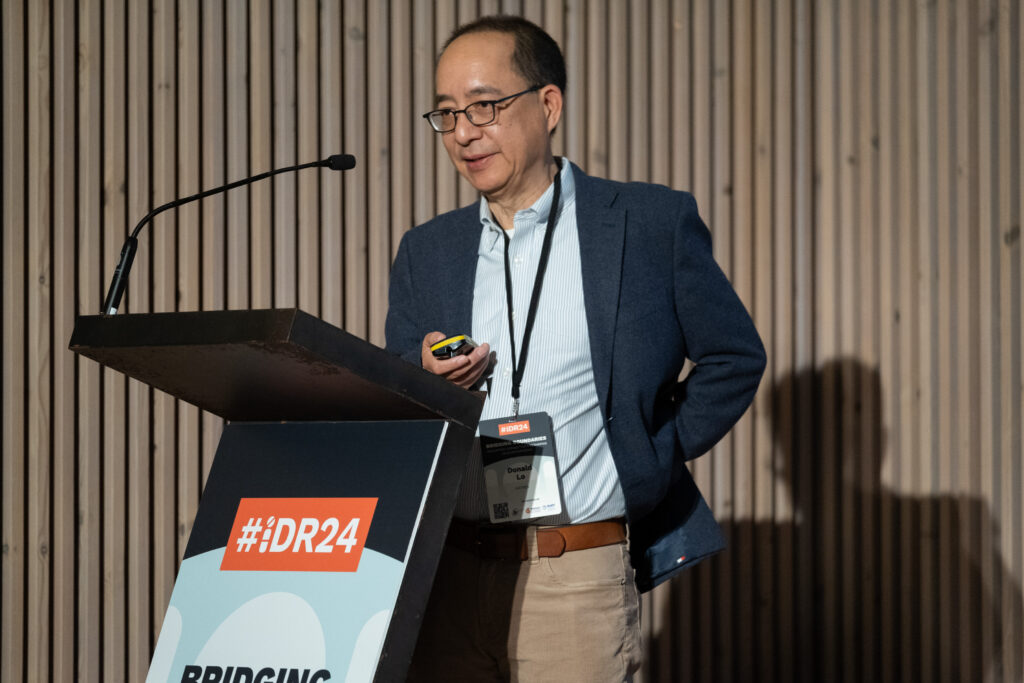
Lo’s analogy of drug repurposing was akin to a versatile Swiss army knife underscored the essence of maximizing the potential of existing medications. “Drug repurposing is not like recycling. It is more like a Swiss army knife where you have numerous tools but only one has been through the approval process. So, you keep always only using this one tool, but there are other applications” he explained.
Projects like REMEDi4ALL and REPO4EU exemplify the collaborative spirit driving advancements in drug repurposing. “REMEDi4ALL aspires to build an end-to-end platform that can be a partner in any part of the process, from therapeutic hypotheses all the way into clinical trials, regulatory process, market access and reimbursement. This will be patient driven and will address issues and common barriers all along the pathway”.
You can watch Don Lo’s #iDR24 keynote speech in full below or here.
Multistakeholder collaboration holds the key
Lo focused on one of REMEDi4ALL pilot repurposing projects led by Lars Schlotawa from the University Medical Centre Goettingen on multiple sulfatase deficiency (MSD) to stress the importance of engaging industry as a partner. AbbVie/Allergan, the original drug manufacturer of tazarotene, granted access to efficacy, safety and drug development data to further clinical research of tazarotene as a potential treatment option for MSD. Working with industry and partnering with AbbVie/Allergan has enabled researchers to save years of time and potentially millions of euros to jumpstart this repurposing project.
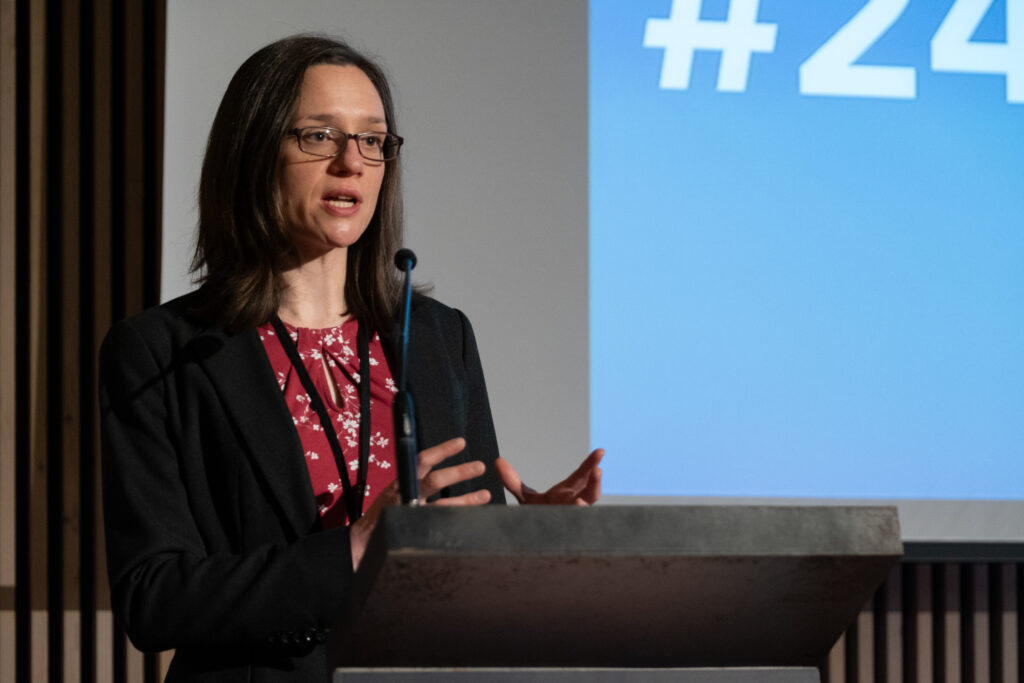
Precisely, collaboration between public and private actors prove to be critical in the successful repurposing experiences to bring new indications on label shared by Nick Sireau, CEO at the AKU society; Rosie Lovett, Head of Medicines Repurposing Programme – NHS England and Heather Stone, CURE ID Lead at the U.S. FDA.
Pharmaceutical industry representatives expressed themselves in a similar line. Adrian Van Den Hoven, Director General of Medicines for Europe and Sini Eskola, Director Regulatory Strategy at EFPIA agreed that burdensome and complex regulatory processes, together with a lack of pricing and reimbursement incentives system in place, are the two main factors preventing continuous innovation specifically to repurpose off patent medicines and allow this approach to scale up.
Van Den Hoven and Eskola referred to the reform of the EU Pharmaceutical Legislation as an opportunity to tackle these major roadblocks and reduce uncertainty for medicines manufacturers. “The real challenge of drug repurposing is scale” commented Van Den Hoven, “but through repurposing as a complement or in parallel to the development of new compounds, we could have a more affordable model which would make systems more sustainable”.
Both industry representatives welcomed the role being played by REMEDi4ALL to establish meaningful links between all actors involved (researchers, industry, regulators, HTAs etc) to jointly envisage sustainable routes for both public and private medicines repurposing.
Pricing and reimbursement, the final stretch for getting drugs to patients
The case of Lodoco (Low-Dose colchicine originally used to treat gout) served to introduce a closing panel discussion focused on pricing and reimbursement issues associated to repurposed drugs (colchicine price escalated once it was licensed for pericarditis).
The closing panel discussion, moderated by Saco de Visser, Scientific Director of Future Affordable and Sustainable Therapies Future (FAST), an agency created by the Dutch government, shed light on the critical importance of addressing pricing and reimbursement challenges to ensure sustainable routes for drug repurposing endeavours. “Sustainable routes for drug repurposing require a predictable business case” stressed de Visser during his intervention.
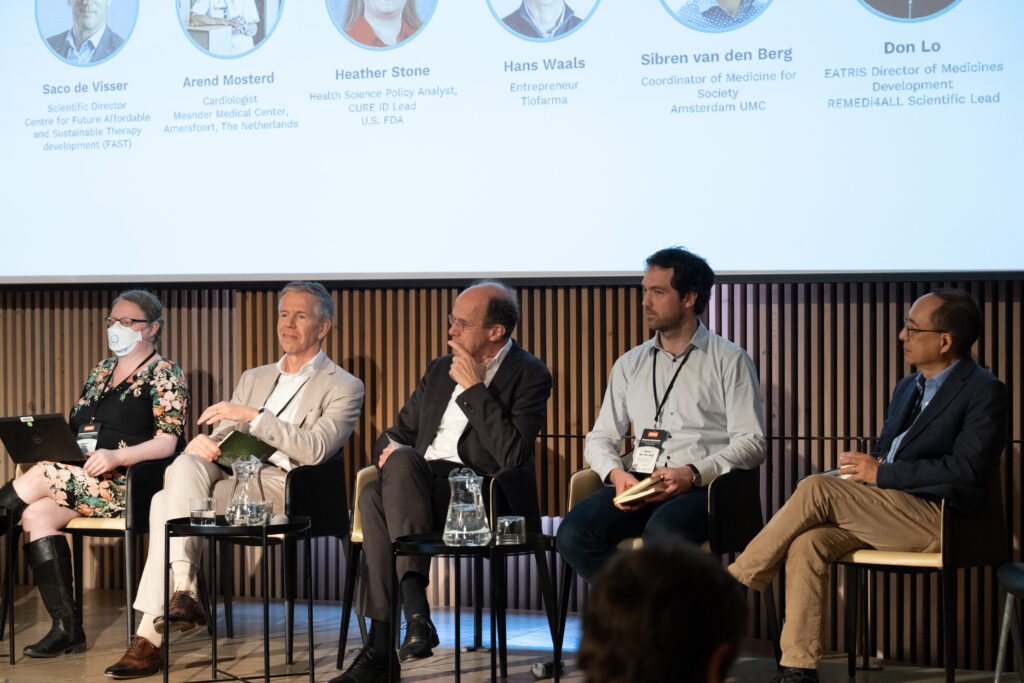
Grant Mitchell, CEO of Every Cure, aptly concluded the conference. His keynote encapsulated the journey from serendipitous discoveries to a systemized approach to unlocking the lifesaving potential of FDA-approved medicines.
With the vibrant energy and innovative vision showcased at #iDR24, the global community has reaffirmed its commitment to driving meaningful change and unlocking new possibilities in the realm of drug repurposing. As we reflect on the dynamism witnessed during this inaugural conference, we look forward to continued collaboration and progress in the ongoing pursuit of improved patient outcomes and public health.
iDR24 resources
Some of these resources might just be available for attendees.
